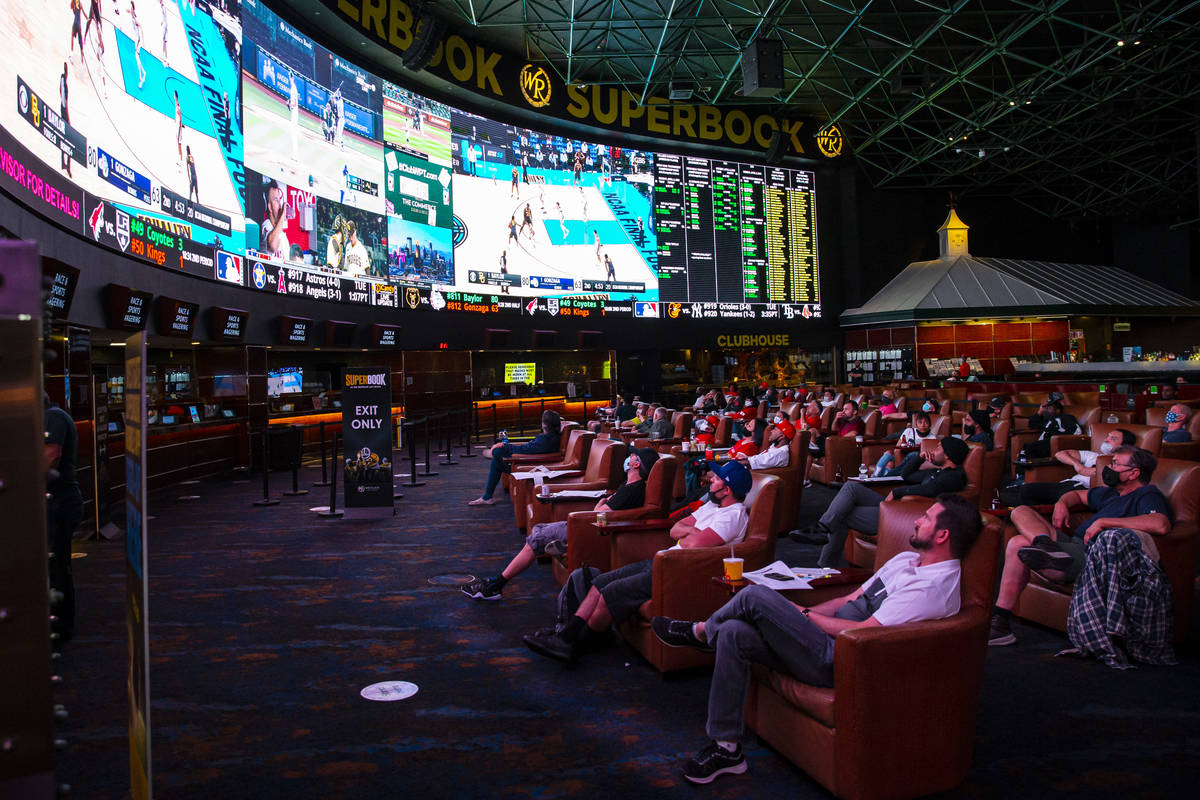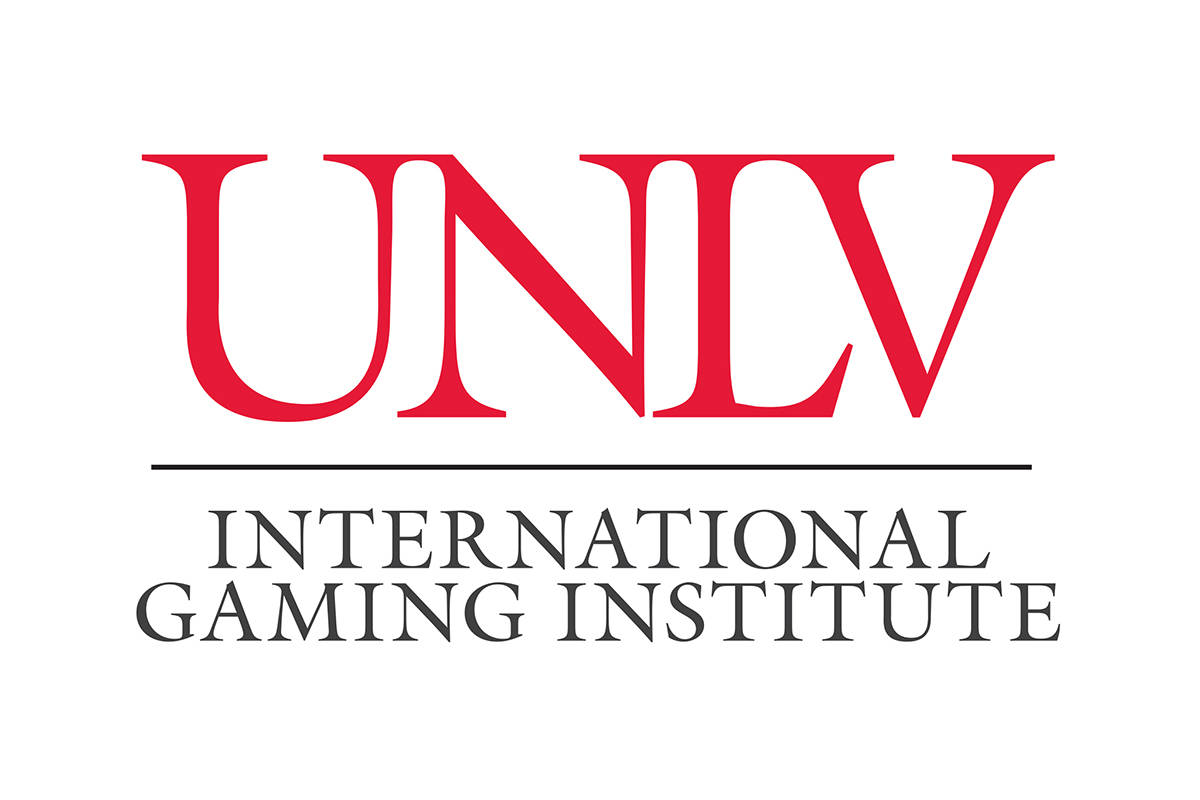UNLV report focuses on harm of sports-wagering ads, illegal sites
UNLV’s International Gaming Institute has issued a report recommending that sports wagering companies not market to vulnerable populations with advertising and that the media not cite illegal offshore gambling sites in their stories unless they’re identified as illegal.
“The Marketing Moment: Sports, Wagering, and Advertising in the United States,” was distributed Thursday and is accessible on the institute’s website.
It was authored by institute members Jennifer Shatley, Kasra Ghaharian, Bo Bernhard, Alan Feldman and Becky Harris. The report was sponsored by the foundation of international sports-betting company Entain based on the Isle of Man, but all research was conducted by institute members and report results were not reviewed by Entain prior to publication.
Among the report’s findings:
— Sports gambling operators should ensure that their advertising does not target vulnerable populations, particularly young people and those with gambling problems. The report notes that social media platforms provide gambling operators and sports teams with a powerful vehicle to communicate with their customers and fans, and it suggests that restrictions pertaining to sports wagering messaging should be put in place with platforms particularly popular among underage groups, such as Instagram, TikTok and Snapchat.
— Media outlets should cease referring to illegal gambling sites as reputable outlets. If a news story cites an illegal gambling outlet, it should say so explicitly. If an illegal site is mentioned, the public should also be made aware that these illegal outlets lack regulatory oversight, consumer protections and responsible gambling programs.
— The industry should ensure that its messaging adheres to established best practices – and, in addition to learning from the experience of other countries with a history of legalized sports wagering, the American Gaming Association’s Responsible Marketing Code for Sports Wagering is a good place to start.
One of the report’s authors said the timing of the release of the report coincides with the massive expansion of mobile sports wagering across the United States.
Post-COVID behavior
“We are entering a new era of changing behavior post-COVID. We are all ‘gamers’ now, having increased our game play during the pandemic, and as we emerge, a renewed commitment to wellness is vital,” said Bernhard, the institute’s executive director.
“Crucially, this includes a renewed commitment to report responsibly on illegal gambling websites and to eliminate irresponsible messaging that harms younger populations and those with gambling problems,” he said.
Key sections of the report focused on discouraging sports-betting companies from marketing directly to underage players.
“Generally, U.S. regulations for sports wagering advertising fall into three main categories: responsible gambling messaging, target audience, and content,” the report says.
“From a responsible gambling messaging perspective, all sports wagering advertising regulations require that the jurisdiction’s toll-free problem gambling helpline be featured on marketing materials, across a variety of media, and/or displayed on the online/mobile wagering site,” the report says.
“Furthermore, regulations typically prohibit marketing that targets vulnerable populations, such as individuals on self-exclusion lists and those below the legal age to gamble.”
The report also detailed the historic rise in advertising casinos, including Las Vegas’ notable skirmish with the National Football League and how Las Vegas was prohibited from advertising during Super Bowl broadcasts.
“For many years, the NFL did not allow gambling companies to advertise at the Super Bowl, nor was Las Vegas allowed to advertise as a destination itself (even though the famed “What Happens Here” ads featured no gambling activities whatsoever),” the report says.
A major fantasy football event was canceled due to the NFL’s rules prohibiting relationships between gambling entities, players and teams.
“Soon after, however, the NFL’s Oakland Raiders enlisted UNLV International Gaming Institute researchers to develop a more research-based understanding of the links between gambling and the marketing of Las Vegas,” the report says.
After changes in the NFL’s strategy — including relocating the Raiders to Las Vegas — the focus shifted to advertising involving legal, regulated gaming sites and unregulated, offshore sites.
Bovada story
The report was also critical of news outlets that fail to distinguish between the legal sites and the illegal sites.
“As we have seen, the U.S. online wagering landscape can be incredibly confusing when seeking to ascertain what is legal and what is not,” the report says. “Furthermore, even respected media outlets get it — and further contribute to this confusion.
“The Washington Post recently ran a story on sports wagering during COVID-19. The story actually opens by highlighting Bovada, a website that operates in an offshore market (which does not stop it from marketing aggressively to Americans, despite its status as an illegal operator). The Washington Post seems as amused as an uninformed American gambler might be, noting that during a time when sports went dark, gamblers could turn their betting attention to the weather,” the report says.
“One problem: U.S.-based gamblers cannot legally wager on the weather. But no distinction is made in the article – nor is there a disclaimer or any indication that this is an operator in an illegal market, even though the article proceeds to compare Bovada implicitly to operators who have undergone the full burden of regulatory review in the U.S.”
Contact Richard N. Velotta at rvelotta@reviewjournal.com or 702-477-3893. Follow @RickVelotta on Twitter.































